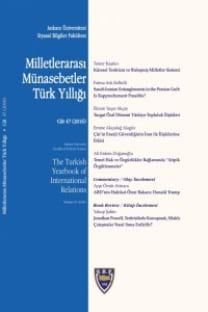The Question of Jerusalem in the Cold-War Era
The old global bipolarity has come to an end. The former EasternBloc joined the West, together forming the "Global North", assertingpreponderance över the "Global South", othenvise knovvn as the Third Worldduring the Cold War era.1 The demişe of the Eastern Bloc has made theNorth-South contradiction even sharper. The future of world politics maywell be determined by the North-South paradigm. Three-quarters of humanitylive in the developing nations of the South. The latter may differ in thedegree of achievement, size or structure or some may even fail in the grayarea in the North-South division, but they have common traits such as facingmuch more powerful centers in the vvorld arena. The Global North, vvhichmay have some pockets of vveakness and poverty as vvell, is generallyindifferent as to the rights, vievvs, aspirations and interests of the GlobalSouth. While the old East-West Cold War axis is being replaced by thedichotomy betvveen the North and the South, the freedom of movement of thelatter is now restricted. The countervailing vveight of the Eastern Bloc nolonger existing, the United States, the strongest among the Northerncountries, is novv engaged, much more than ever, in setting the agenda ofintemational politics both vvithin and outside of the United Nations. Thatvvorld organization novv has a nevv role mostly in the service of the North.The present imbalanced distribution of povver is a long vvay from vvhat theglobal situation vvas only a fevv years ago.
Anahtar Kelimeler:
The Question, Jerusalem, Cold-War Era
The Question of Jerusalem in the Cold-War Era
- ISSN: 0544-1943
- Yayın Aralığı: Yıllık
- Başlangıç: 1960
- Yayıncı: Ankara Üniversitesi Siyasal Bilgiler Fakültesi Uluslararası İlişkiler Bölümü
Sayıdaki Diğer Makaleler
Political Attitudes of Students in the United States Turkey and Turkey and North Cyprus
Eddie J. GİRDNER, Russell EİSENMAN, Sevgin AKIŞ
The Development Paradigm: Sustainable Human Development
The Rise and Fall of the Wealth of Nations
Struggle for East-European Empire: 1400-1700
From the Ottoman Experiment in Local Government to the First Constitutional Parliament of 1876-1877
Double Standards in Recent American Foreign Policy
The Question of Jerusalem in the Cold-War Era
The Etiology of Racism in Europe
Mehmet SUPHİ, Abdülkadir ÇELİK, Birsen CEYHUN
The Role of the Muslim Minorities in Interstate Relations in the Balkans
